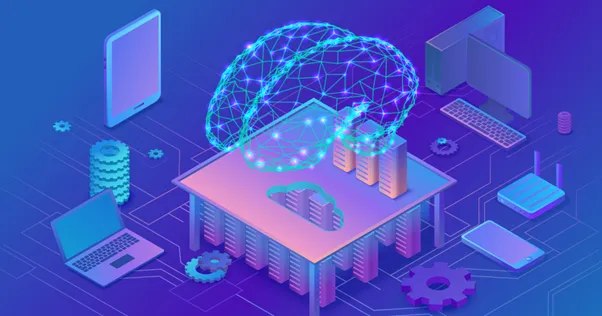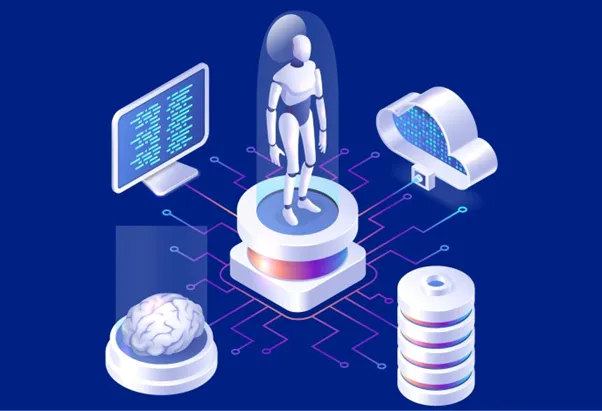Why ML and AI Are Important for Your Business?
In the world of technology, the terms artificial intelligence (AI) and machine learning (ML) have grown in prominence. But what do these terms really represent, and why are they significant for your business? This article seeks to address these issues by giving an overview of artificial intelligence (AI) and machine learning as well as examples of its applications in many sectors.
What Exactly Is Artificial Intelligence, and What Are Some Instances of It?

Artificial intelligence is the study of intelligent robots that are capable of doing activities that often need human-like ability, such as learning, problem-solving, and decision-making (AI). To effectively train the intelligent systems, data analysts often use annotated data that provides clear examples from which the AI can learn. This improves performance, especially in areas such as language delivery and visual recognition.
The three various types of AI systems include rule-based systems, machine learning systems, and neural networks. Whereas machine-learning systems are intended to learn from data and become better over time, rule-based systems base their judgments on a predetermined set of rules. Neural networks, which are computerized simulations of the human brain, may be taught to see patterns and draw conclusions from them.
A few instances of AI in action are as follows:
- Virtual personal assistants like Siri and Alexa understand and respond to user queries using natural language processing (NLP).
- Deep learning algorithms work in conjunction with AI and machine learning development services and are used to evaluate visual and aural input in the image and voice recognition systems, such as those used in self-driving automobiles.
- Predictive analytics, which analyzes past data using machine learning algorithms to create predictions about future occurrences such as weather forecasting or stock market patterns.
- Chatbots that employ natural language processing and machine learning to interpret and reply to client inquiries in real-time.
- Natural language generation (NLG) systems employ artificial intelligence (AI) to produce human-like language for activities such as automated report writing or news article creation.
What Is Machine Learning and What are Its Examples?

The study of machine learning, a branch of artificial intelligence (AI), aims to develop statistical models and algorithms that will allow computers to learn from data and form conclusions or predictions without explicit programming. Machine learning is centered on teaching computers to learn from examples, discover patterns, and make accurate predictions or judgments based on that knowledge. There are many kinds of machine learning algorithms, including supervised learning, unsupervised learning, and reinforcement learning.
Among the various uses of machine learning are:
- Machine learning algorithms can examine financial transactions and find unusual trends that may signal fraudulent behavior.
- Systems that provide recommendations based on user behavior: ML algorithms may assess user data and make suggestions for goods or services based on prior user activity.
- Algorithms evaluate patient data to assist physicians in identifying ailments and proposing therapies.
- Algorithms utilize data from machines to estimate when maintenance is necessary, minimizing downtime and maintenance costs.
- Machine learning algorithms can scan text data and discern the mood or emotion behind it, which may be useful in marketing and customer support.
Why Are AI and Machine Learning Important to Your Business?
- AI/ML are important to organizations because they provide several advantages and possibilities that may help firms enhance their operations and remain competitive in the market.
- It may assist firms in gaining useful insights into their clients and industry trends. These technologies can spot trends and behaviors in enormous volumes of data, allowing businesses to make better-educated choices and build more focused marketing campaigns.
- AI and ML may automate repetitive jobs and procedures, decreasing employee effort and enhancing productivity. This may result in cost savings and free up workers’ time to work on more critical and innovative projects.
- AI and machine learning may improve customer service by offering tailored and quick solutions. Customer inquiries and complaints may be handled by chatbots and virtual assistants in real time, increasing customer happiness and loyalty. They can develop new company models and income sources. Companies, for example, may create AI-powered goods or services that provide clients with new and inventive solutions.
Conclusion
As we’ve seen, AI and ML may help organizations in a variety of ways, including by giving them useful insights, automating tedious jobs, increasing decision-making, expanding customer service, and generating new income streams. Companies that use these technologies might thus acquire a competitive edge and continue to be relevant in today’s fast-paced business environment.